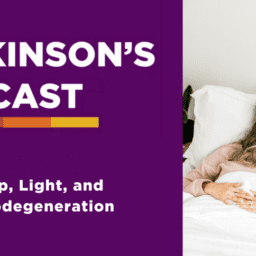Didn’t Sleep Last Night?
A terrible night of tossing and turning makes usual morning exhaustion feel even more overwhelming. If you’re struggling with sleep at night, we want to help you live well and sleep better.
Consider taking the following steps to make the next day a little easier:
- Examine your schedule and see what you can drop. Give yourself permission to eliminate anything that makes it harder for you to have a successful day.
- If possible, try to reschedule critical tasks earlier in the day or whenever you are likely to have the most energy.
- If necessary, incorporate a brief nap into your schedule. Try for about seven to nine hours after waking up and don’t snooze for more than 30 minutes.
- Avoid canceling any routine exercise activities. Regular exercise has many benefits for people with Parkinson’s, including fighting fatigue and helping regulate sleep at night.
- Most importantly, take time to look at elements of your sleep routine you may have overlooked or skipped the previous night. Can you point out any patterns that could be causing poor quality sleep?
- Contact your doctor. If you notice that you may have woken up because your medications have worn off, make a note to contact your doctor about optimizing your medications to get the best sleep you possibly can.
Have you been moving a lot while you sleep?
If you are moving a lot while you sleep, this could be a sign of REM Sleep Behavior Disorder (RBD), a condition often associated with Parkinson’s in which you act out aspects of your dream while sleeping. Learn more about RBD, and how you can make changes that can improve your sleep.
What have you found helps you make the most of your morning after a tough night’s sleep? Share your ideas in the comment section below.

















I’ve started having shout outs at night once a week. What gives?
This could possibly be a symptom of REM Sleep Behavior Disorder, a common symptom in Parkinson’s that causes you to act out your dreams. You can learn more about the disorder via this link..
For starters, begin keeping track of your sleep and note any patterns you see over the course of a week. This will help you communicate more effectively with your neurologist and help develop a proper plan to limit the episodes of shouting during sleep. You can access this worksheet by clicking this link.
These all tips are great!
Recently I have faced like my mind does not get calm in a night it just keeps thinking about all things. I have tried meditation and I found it really helps it.
That’s great, Amelie. Yes, meditation can be so helpful. I’m glad it’s working for you.